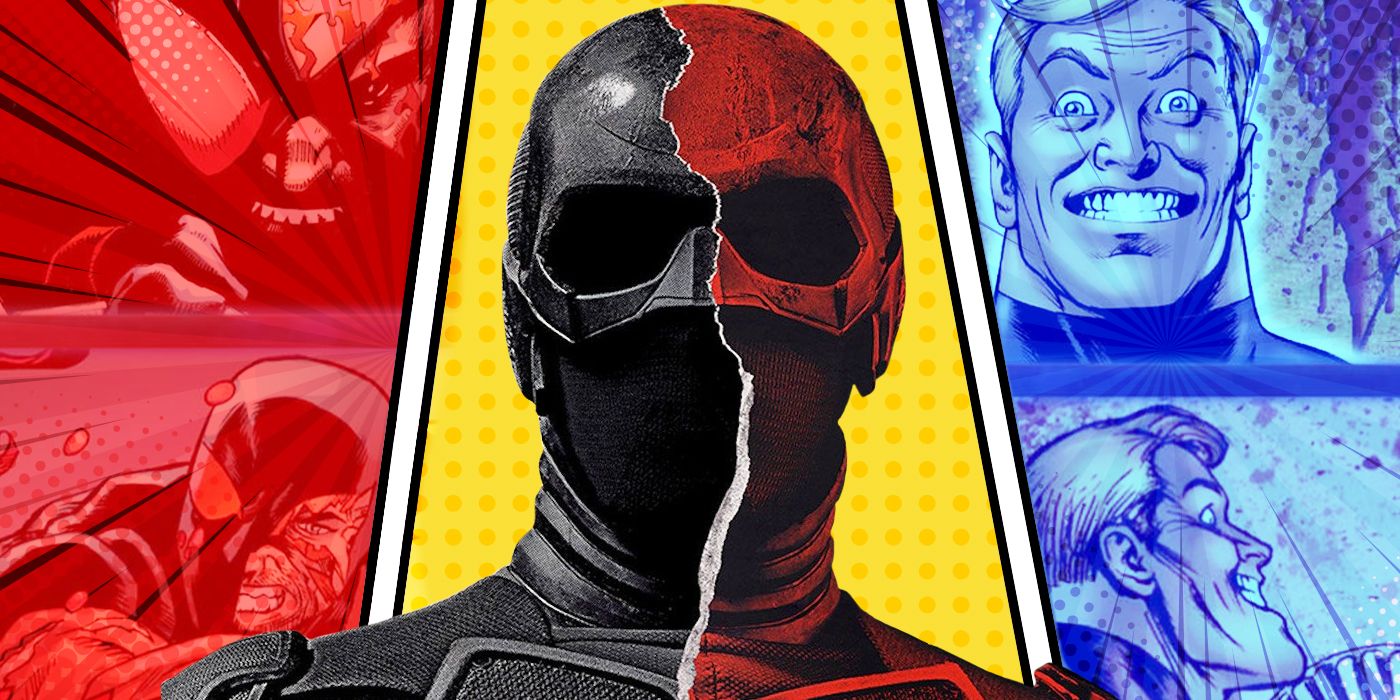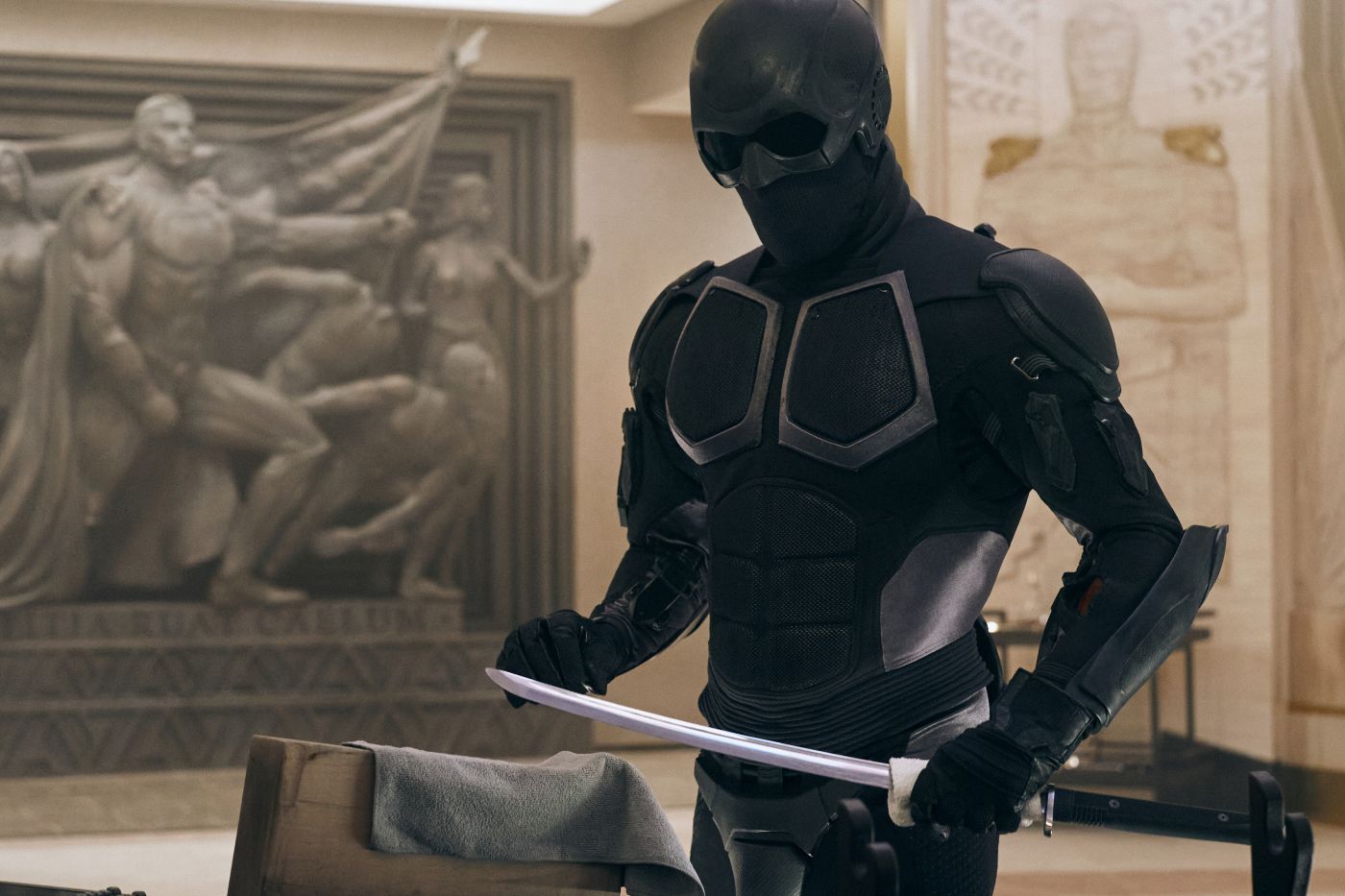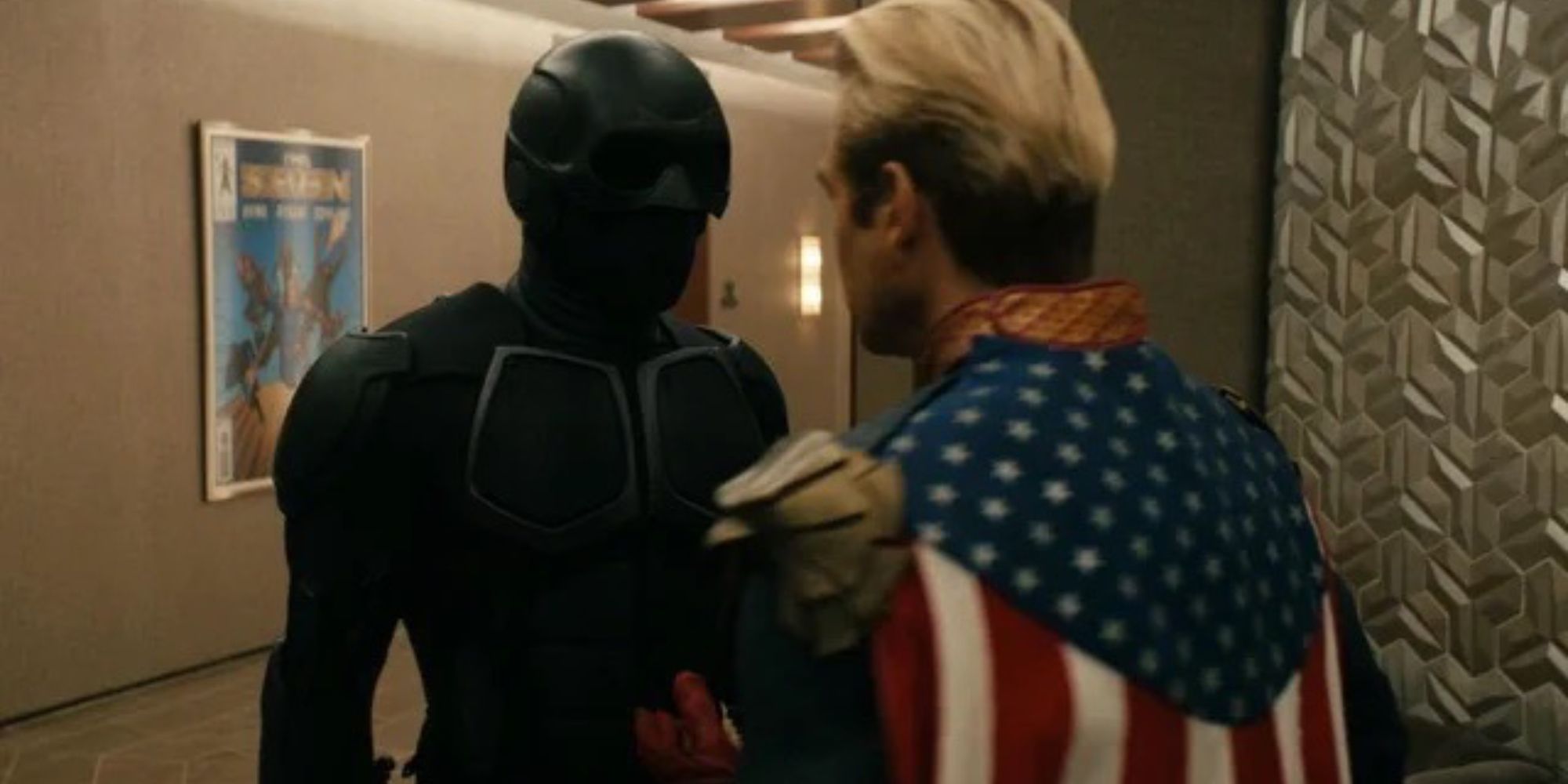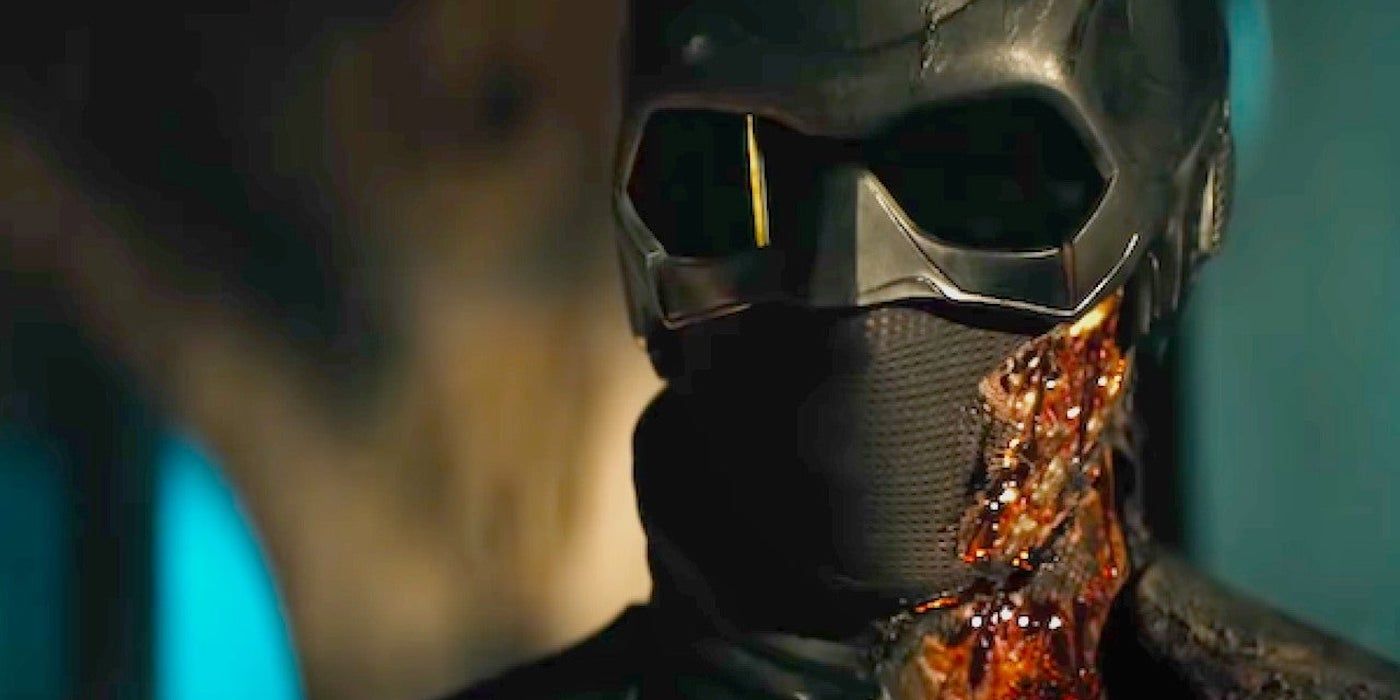There aren’t many television shows returning in 2023 that are quite as heavily anticipated as season 4 of The Boys. After the riveting Season 3 finale that saw Homelander (Antony Starr) going down one of his darkest paths yet, there’s no limit to what sort of madness will take place in the next few seasons. In one of the most chilling moments in the series’ history, Homelander kills his most loyal companion, Black Noir (Nathan Mitchell), for not telling him that Soldier Boy (Jensen Ackles) is really his father. While it's a gripping storyline, Black Noir’s face and backstory is quite different in the original comic books.
In season 3 of The Boys, it is revealed that Black Noir was once a superhero named Earving who was a member of the group Payback, Vought’s original team that predated The Seven. While Black Noir was considered to be one of the group’s most important members due to his service throughout the Cold War, the group was sabotaged by Soldier Boy. Soldier Boy abuses and bullies Black Noir mercilessly, and he’s forbidden by Stan Edgar (Giancarlo Esposito) from taking off his mask, as it’s believed that a black superhero was not financially viable. Even though Payback is able to take down Soldier Boy, he brutally disfigures and scars Black Noir so that he will never be able to take his mask off again.
In order to make the series unique and offer surprises for original readers, the showrunners of The Boys adopted many changes to the show that weren’t part of the comics. While Black Noir’s origin story in the comics is interesting in its own right, it's not something that those who only watched the show may know. Here’s everything you need to know about the key differences between the two.
The Comics vs. TV Series
In the original comics, the Vought-American Corporation creates Black Noir as an identical genetic clone of Homelander who is the only member of the team that can match him in strength. While Black Noir is ruthless and works closely alongside Homelander, it’s implied that Homelander is the more brutal of the two, as Billy Butcher (Karl Urban) is convinced that he’s responsible for raping his wife Becca (Shantel VanSanten), thus creating the first superhuman child. His theory seems to be proven correct when The Boys discover disturbing photographic evidence of Homelander brutally murdering, raping, and abusing men, women, and children in an act of savage cannibalism and necrophilia. Billy becomes more determined than ever to see Homelander brought to justice.
However, Homelander begins to have a mental breakdown upon the discovery of the photos, as he has no memory of these crimes and thinks that he may have cognitive identity confusion. Frenchie (Tomer Capone) ultimately confronts him and realizes Homelander has been talking to himself and unable to process what he’s seen; he hides this information from Butcher. Unfortunately, this doesn’t change Homelander’s attitude, as he decides that while he is cursed for these acts of evil, he must not allow any more distracting thoughts into his mind in order to remain steadfast in his journey.
A Startling Revelation
Hughie has a startling encounter with Black Noir during the Herogasm arc that suggests to him that the faceless superhero may share some of the same depraved desires as Homelander. However, Homelander has decided to break free of his control by Vought and leads the rest of the superhero team in an attack on the White House. They ruthlessly take out the entire building, including the vice president, who was directly under control of Vought. This leads Butcher to finally show up and confront Homelander in an act of revenge, as he had never revealed to Homelander why he’s hated him for so long.
This is followed by a startling appearance by Black Noir, who reveals that he was the one responsible for the murder, cannibalism, and necrophilia cataloged by the photographs. He reveals himself as Homelander’s identical clone, created for the sole purpose of eliminating him if he ever went rogue or attempted to betray Vought. The agony of not being able to take down Homelander for their entire career together drove Black Noir to go on his rampage; he finally reveals that he was the one that raped Becca. By setting up Homelander and Butcher as enemies, Black Noir hoped he would finally be allowed to kill Homelander.
A Brutal Confrontation
The shocking reveal sets Homelander on a new path of vengeance as he attempts to kill Black Noir for causing his mental breakdown. They get into a brutal brawl and both sustain heavy injuries, but Black Noir successfully beats Homelander to a pulp. While Homelander dies, he leaves his opponent worn down to the point that Butcher finally gets his revenge and kills Black Noir with a crowbar. Now embittered to take down every superhero, Butcher uses the genetic material to gain superpowers.
Later on in the series, James Stillwell (also known as “The Guy From Vought”) is approached with a pitch to bring back all of The Seven as part of a new superhero group called “True,” which would be given only limited mental independence. He hears a proposal to resurrect Black Noir as a new hero named “White Blanche,” but Stillwell decides that any mix of Compound V with superheroes will ultimately spiral into chaos. Stillwell later suffers from his own mental breakdown. The Boys comics ended in November of 2012 with their 72nd and final issue.
This is a pretty major departure from the show; in the Season 3 finale “The Instant White-Hot Wild,” there’s reason to actually have sympathy for Black Noir when he’s tormented by animated imagery that chronicles his abuse by Soldier Boy. One of the cruelest ironies of the show is that despite hiding Homelander’s heritage from him to protect him, Black Noir is killed for sparing him the painful truth. While a new Black Noir is set to appear in season 4 of The Boys, his death remains one of the most challenging moments in both the show and comics.




